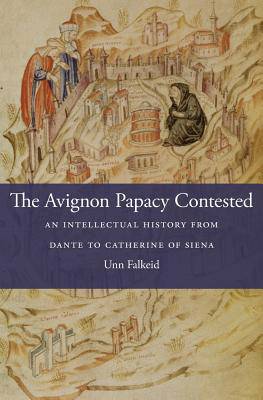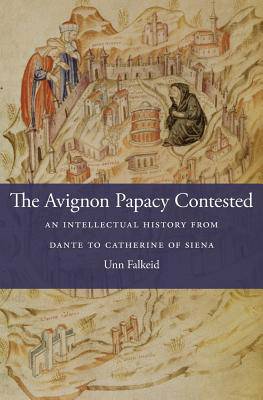
- Afhalen na 1 uur in een winkel met voorraad
- Gratis thuislevering in België vanaf € 30
- Ruim aanbod met 7 miljoen producten
- Afhalen na 1 uur in een winkel met voorraad
- Gratis thuislevering in België vanaf € 30
- Ruim aanbod met 7 miljoen producten
Omschrijving
The Avignon papacy (1309-1377) represented the zenith of papal power in Europe. The Roman curia's move to southern France enlarged its bureaucracy, centralized its authority, and initiated closer contact with secular institutions. The pope's presence also attracted leading minds to Avignon, transforming a modest city into a cosmopolitan center of learning. But a crisis of legitimacy was brewing among leading thinkers of the day. The Avignon Papacy Contested considers the work of six fourteenth-century writers who waged literary war against the Catholic Church's increasing claims of supremacy over secular rulers--a conflict that engaged contemporary critics from every corner of Europe.
Unn Falkeid uncovers the dispute's origins in Dante's Paradiso and Monarchia, where she identifies a sophisticated argument for the separation of church and state. In Petrarch's writings she traces growing concern about papal authority, precipitated by the curia's exile from Rome. Marsilius of Padua's theory of citizen agency indicates a resistance to the pope's encroaching power, which finds richer expression in William of Ockham's philosophy of individual liberty. Both men were branded as heretics. The mystical writings of Birgitta of Sweden and Catherine of Siena, in Falkeid's reading, contain cloaked confrontations over papal ethics and church governance even though these women were later canonized. While each of the six writers responded creatively to the implications of the Avignon papacy, they shared a concern for the breakdown of secular order implied by the expansion of papal power and a willingness to speak their minds.Specificaties
Betrokkenen
- Auteur(s):
- Uitgeverij:
Inhoud
- Aantal bladzijden:
- 288
- Taal:
- Engels
- Reeks:
- Reeksnummer:
- nr. 21
Eigenschappen
- Productcode (EAN):
- 9780674971844
- Verschijningsdatum:
- 21/08/2017
- Uitvoering:
- Hardcover
- Formaat:
- Genaaid
- Afmetingen:
- 163 mm x 239 mm
- Gewicht:
- 544 g

Alleen bij Standaard Boekhandel
Beoordelingen
We publiceren alleen reviews die voldoen aan de voorwaarden voor reviews. Bekijk onze voorwaarden voor reviews.











